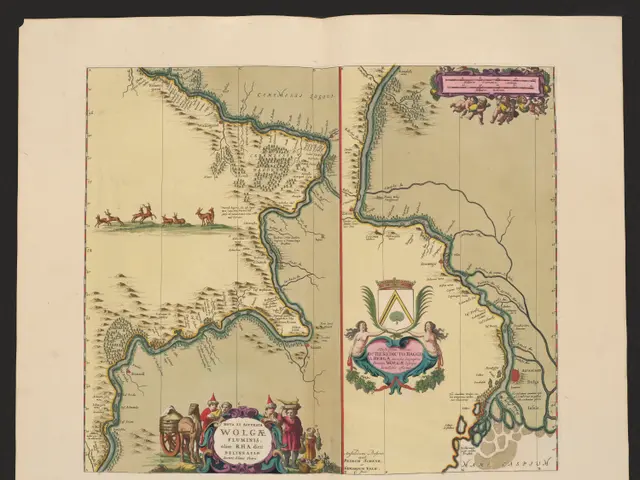Countries face challenges in reaching a consensus during the concluding round of negotiations for the UN's Plastic Treaty - Countries hurry to reach consensus during the last round of United Nations negotiations on plastic pacts
The UN Plastic Treaty talks held in Geneva from August 5 to 14, 2025, have come to a close without reaching a consensus on a legally binding global treaty to combat plastic pollution. The negotiations, which followed the failed discussions in Busan, South Korea, last December, aimed to set ambitious targets to cap plastic production, phase out harmful chemicals, and address the entire lifecycle of plastics.
Key disagreements centered around the scope and enforceability of the treaty, with a coalition of ambitious countries, including the EU, Rwanda, Norway, Panama, Canada, Chile, Small Island Developing States, and others, pushing for a strong, comprehensive treaty. However, petrochemical and oil-producing countries resisted these measures, causing a stalemate.
The EU and several Latin American countries, part of the High Ambition Coalition, advocated for binding measures across the full lifecycle of plastics, including reduction targets and controls on plastic production and pollution. In contrast, oil-producing countries, often referred to as petro-states, resisted measures that could limit fossil fuel-related plastic production, citing economic interests.
One of the contentious issues was the regulation of specific plastic pollution types, such as "ghost gear" (abandoned fishing nets and gear), a deadly form of marine plastic pollution. Regulations on ghost gear were weakened in the negotiations, showing a lack of consensus on key measures to protect marine ecosystems.
Fossil fuel companies and large plastic producers, linked to oil-producing nations, heavily lobbied against stricter regulations, contributing to the breakdown of talks. As a result, the latest draft by the Negotiation Chair, Luis Vayas Valdivieso, was rejected by all sides on Wednesday.
Environmental organizations have warned of the consequences of a failed negotiation, with WWF stating that the impact on people and nature would be enormous. Graham Forbes, the head of the Greenpeace delegation in Geneva, urged ministers to "uphold the ambitions they have promised."
As the talks conclude, Luis Vayas Valdivieso continues to serve as the Negotiation Chair, with delegations from both oil-producing countries and the EU, as well as Latin American countries, holding separate talks on Thursday morning. Representative of think tank The Common Initiative, Aleksandar Rankovic, does not expect an ambitious agreement in Geneva, stating that there are only two scenarios: a bad agreement or a failure to reach an agreement at all.
The bad scenario, as described by Rankovic, is that countries adopt a very bad agreement similar to the Wednesday proposal, but possibly even worse. The UN process is considered stalled but may continue with a reformed negotiating strategy in future rounds.
Read also:
- Amidst India's escalating climate crisis, transgender individuals continue to persevere
- Germany's three-month tenure under Merz's administration feels significantly extended
- Governing body allegedly persists in enjoying vacation time amidst Spain's highest danger level due to fires, claims Feijóo
- United Nations Human Rights Evaluation, Session 45: United Kingdom's Statement Regarding Mauritius' Human Rights Record








